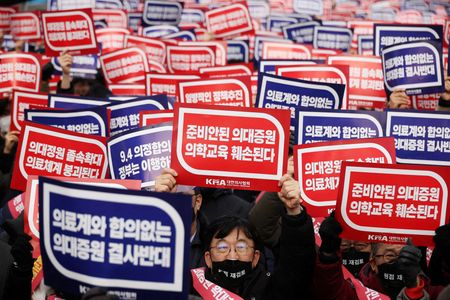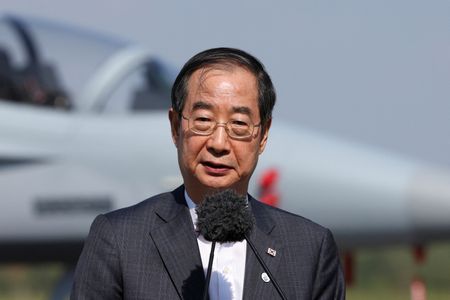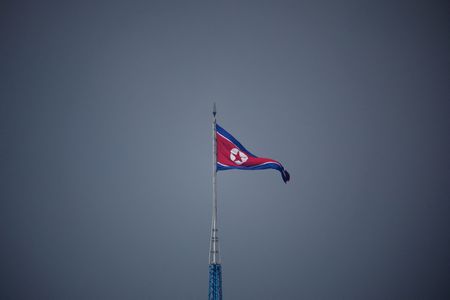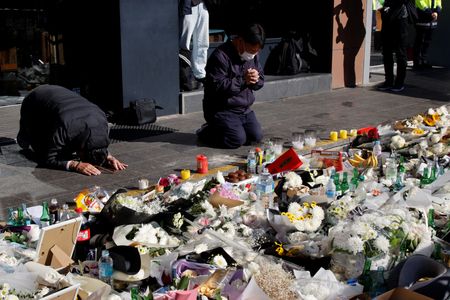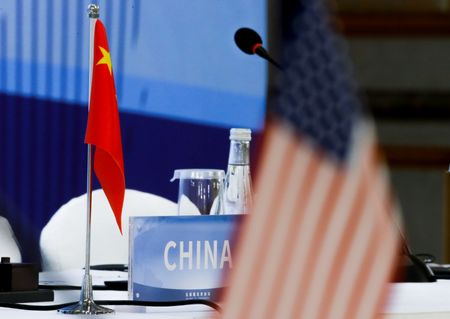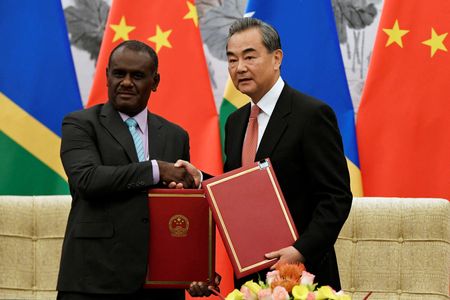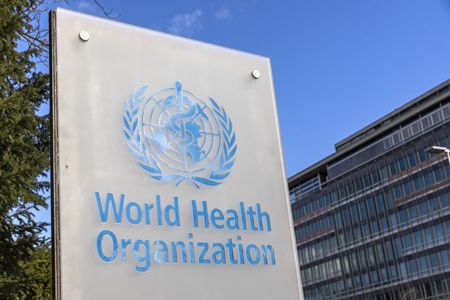By Hyonhee Shin
SEOUL (Reuters) -South Korea’s government announced a compromise in its medical reform plans on Friday in a bid to end a two-month walkout by doctors, and also said President Yoon Suk Yeol would meet the opposition leader for the first time after two years in office.
The conciliatory moves followed a crushing election defeat for Yoon’s ruling party last week. The government has been locked in a stalemate with doctors over its plans to boost medical school admissions.
Prime Minister Han Duck-soo said on Friday the government accepted a proposal by major state medical school deans to let them set new admissions for 2025. This was the first shift from the government’s plan to increase new medical student admissions by 2,000 a year from next year, eventually adding 10,000 more physicians by 2035.
The association representing the country’s trainee doctors who walked off the job on Feb. 20 said it had no information to share, following the government announcement.
Following the announcement on medical school admissions, Yoon’s office and the opposition Democratic Party (DP) said Yoon and DP leader Lee Jae-myung held a brief phone call and Yoon invited him to a meeting next week.
Yoon’s refusal to communicate with parliamentary leaders and the standoff with doctors were key issues in last week’s legislative elections, in which Yoon’s ruling party failed to win back control of parliament.
A Gallup Korea opinion survey published on Friday showed Yoon’s support ratings had plunged by 11 percentage points to 23%, the lowest since he took office in May 2022.
Han said he accepted the proposal to scale back the increase in the medical school admissions quota and to give universities flexibility in setting their quotas, as a potential way to reach a compromise.
Thirty-two medical schools will now be allowed to lower their previously designated quotas by up to 50% for next year, while the increases for 2026 and beyond will proceed as planned.
Han said the government had made a “bold decision” amid a lack of consensus in the medical community, mounting concerns over the walkout and a need for universities to finalise their academic calendar for next year.
Yoon has been pushing to add more doctors as part of his medical reforms, pointing to a shortage of physicians outside the greater Seoul area and in essential medical disciplines including emergency care and paediatrics.
The protesting physicians have said the healthcare sector is not short of doctors, and the government’s plans fall short of addressing pay and working conditions properly.
Yoon was initially emboldened by opinion polls showing South Koreans overwhelmingly supported the idea of adding more doctors, but some voters had started to blame him for refusing to show flexibility.
Yoon’s office did not immediately respond to a request for comment on the change in the medical reform plans. But asked about his support ratings falling to a record low, an official said the government was making its utmost effort to reflect the people’s wishes in state affairs.
(Reporting by Hyonhee ShinAdditional reporting by Jack Kim Editing by Ed Davies and Frances Kerry)

